How Civic Organisations Are Visibly Transforming Abkhazia Despite Criticism

Civic organisations in Abkhazia have recently become targets of criticism and unfounded accusations from the current government—particularly during the tenure of former Foreign Minister Inal Ardzinba. Before, such scrutiny was uncommon, but now accusations often focus on claims that NGOs lack tangible results, while disinformation campaigns and "foreign agent" narratives gain traction. Despite these challenges, Abkhazian civil society continues to quietly improve social infrastructure and community well-being.
This article, originally published on the Abkhazian Telegram channel 'OKNO', has been translated from Russian.
Civic organisations often face hostile criticism. In the flood of disinformation about NGOs, there are frequent claims that we have no tangible results from our activities. The principle of "doing good quietly" and the belief that charity should be modest and without noisy publicity have ultimately been used against us. Therefore, we would like to return to the discussion of civil society’s contribution to projects that deliver visible results, such as the improvement of social infrastructure and the well-being of the community. This is particularly important in light of the recent surge in anonymous Telegram channels promoting the foreign agent narrative, which have seen a sudden increase.
We have decided to launch a series of publications about civic activism aimed at addressing social issues in schools, towns, villages, and society as a whole. To begin with, we will focus on social and infrastructure projects implemented by the public organisation "Амилаҭтә ресурсқәа" ("National Resources") in partnership with the Joint EU-UN Programme for Rural Development, in various districts of Abkhazia. The organisation is led by the well-known public figure, Tsiza K. Gumba, a member of the People's Assembly—Parliament of the Republic of Abkhazia in its 2nd convocation.
A key focus of the organisation’s work is the support of social projects, such as the renovation and equipping of urban and rural schools and kindergartens, the Gudauta District Hospital, the creation of a physical therapy centre for people with disabilities, the construction of a mini-stadium and sports grounds, the establishment of a horse stable, the planting of a tree nursery, and much more.
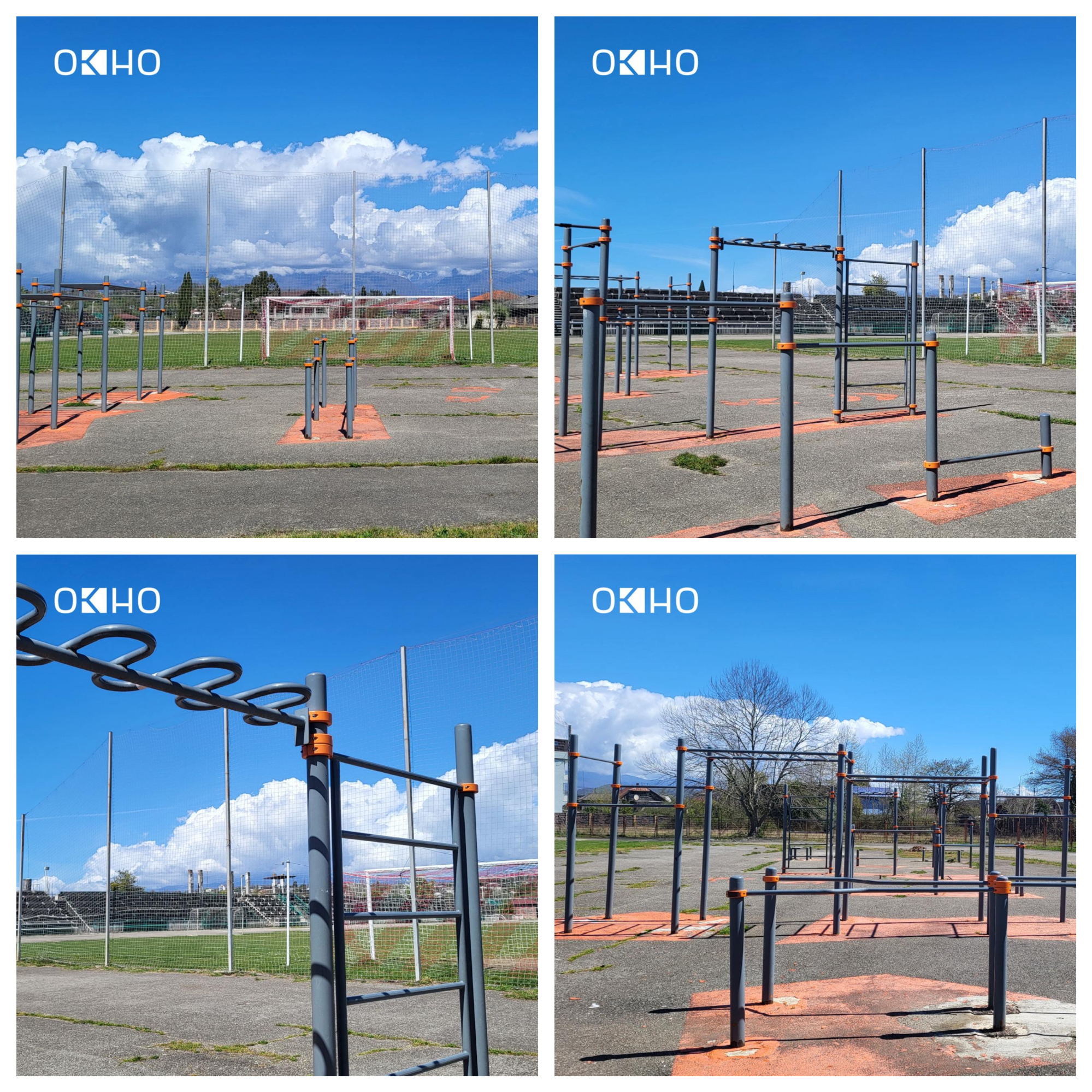
Exercise park at Gudauta stadium.
Young activists from Gudauta’s district initiative group had long dreamt of having sports facilities in their town. In 2019, they applied for a grant to build an exercise park (outdoor gym) at Gudauta’s central stadium. A member of the initiative group, Inar Smyr, shared the details:
"UNDP provided us with this opportunity, and we decided to take part. We drafted a project, and it was approved. There are small pieces of gym equipment in the park along the seafront, but it’s far from here. People come to the central stadium to work out, myself included. It’s an open space. The workout park is designed so that people can exercise independently without any machines. Typically, gym equipment is mechanical and can break over time, requiring maintenance. But a workout park consists of a series of bars, which are durable and offer a wide range of uses. They require minimal upkeep and deliver maximum benefit."
The activist explained that the workout park is designed for both children and adults, whether beginners or experienced athletes. "It’s a useful facility for leading a healthy lifestyle. The children’s football team also trains at the central stadium and makes active use of it." Up to half a million roubles ($5,500) were allocated for the project’s implementation.
Gudauta’s Third Secondary School, named after F. Avidzba, was renovated in 2021 under the Investment Programme. Thanks to Russian financial assistance, the building underwent major repairs. However, the dining hall was not fully equipped, as the installation of a water tank was not planned. The canteen only became fully operational in February of this year, after a boiler and steam convection oven were purchased through the Амилаҭтә ресурсқәа ("National Resources") project. The school has 445 students. 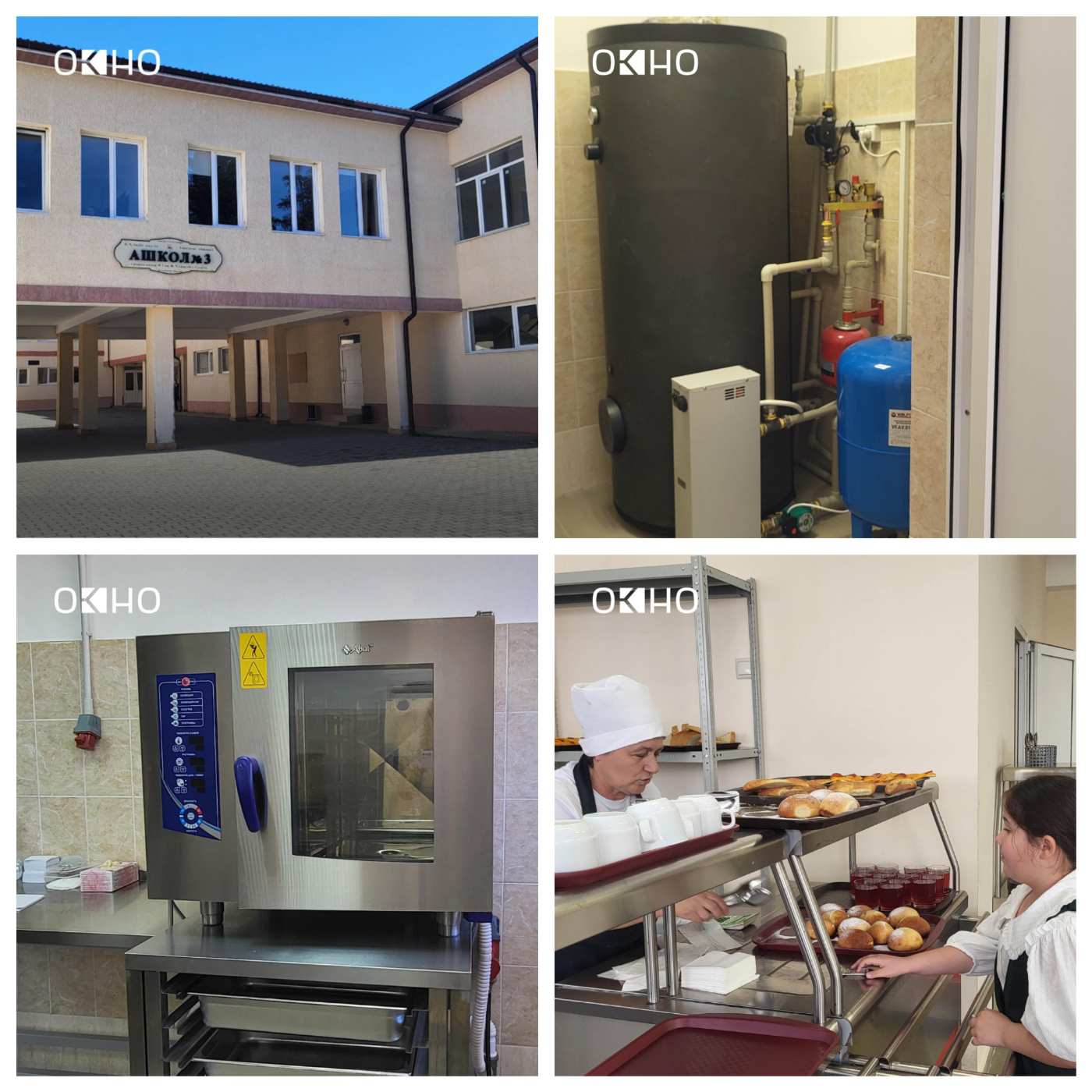
Inna Khalvash, who has been the school’s headteacher since 2017, admits that the school lacked a proper canteen for all these years—only buns and juices were sold. For three years, they could not get the canteen up and running. Inna Khalvash explains:
"Who could have imagined there wouldn’t be a hot water tank? What kind of canteen operates without both hot and cold water, without a steam convection oven? We heard about the social project for rural areas, as we have children from villages attending the school. Based on that, we applied for a one million rouble ($11,000) grant. Of that, we had to contribute 10% ourselves for the works. The project was approved in 2023. This is my first collaboration with them, and it has certainly been beneficial. Such programmes are essential."
Cook Marina Khalvash explains that children can now enjoy hot meals in the canteen, including both first and second courses.
"Today, we have got beef pilaf, navy-style pasta, powdered buns, potato pies, sausage rolls—they are already gone, as the children love them. We also buy halal sausages, as there are Muslim students at the school. We make our own compote, and everything else is homemade. The only thing we buy is bread. The steam convection oven works perfectly, steaming all the products. We bake buns, cook porridge, buckwheat, and steam cutlets."
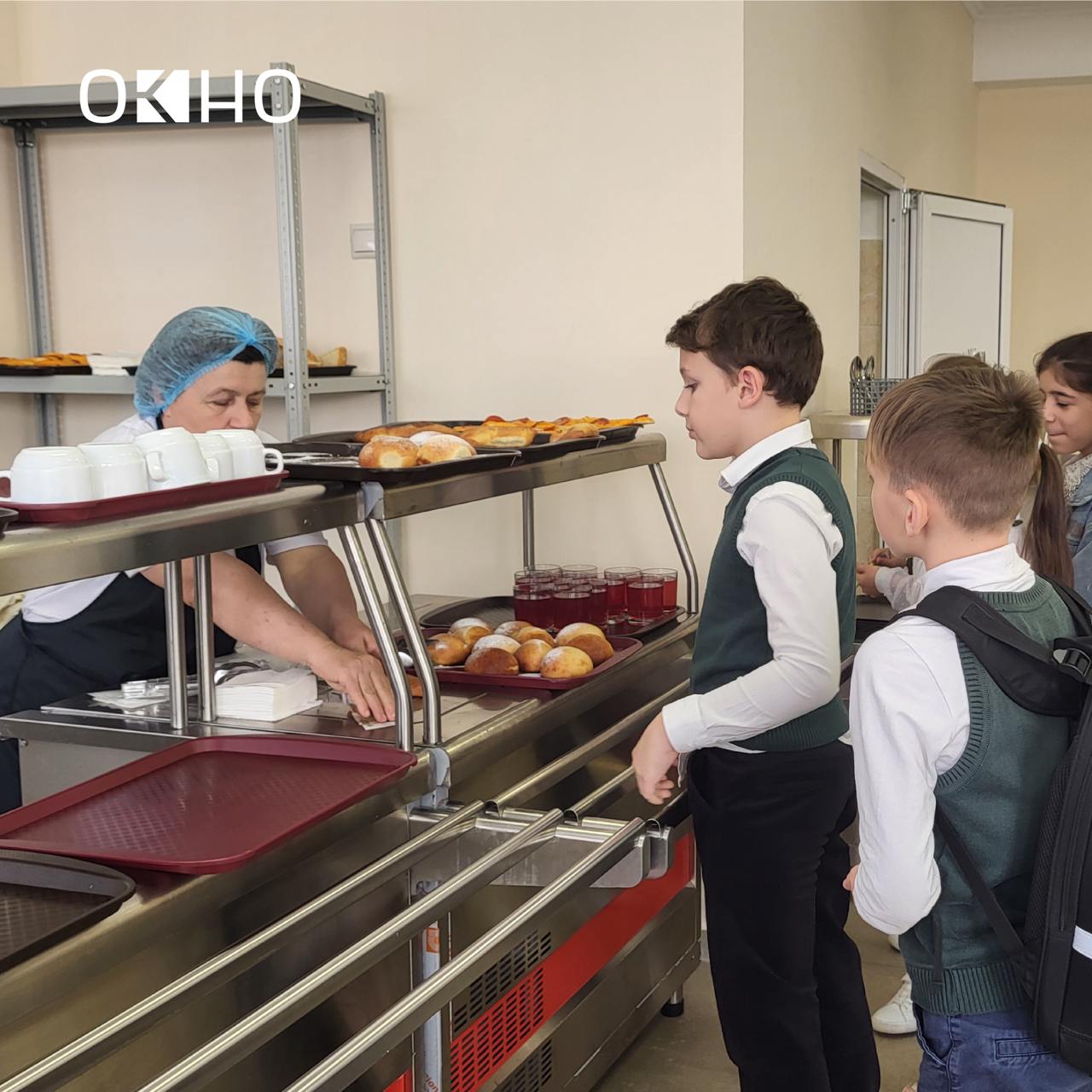
While we were talking, the bell rang, and the children rushed into the canteen. Alexandra from Year 2 chose pilaf with meat, while Suleyman from Year 4 asked for a potato pie and some compote. The students shared that they enjoyed the food served in the canteen.
The reconstruction of the assembly hall at the second school in the village of Kulanurkhu, Gudauta District, was completed in 2020. However, the school building remains in a dire state; construction was halted when the Georgian-Abkhazian war broke out in 1992. The school’s headteacher, Alla Smyr, explained that a repair estimate for the roof was drawn up back in 2010, but it remained on paper. Today, the school has only 26 students. The headteacher noted that many parents prefer to send their children to schools in town. For example, 59 pupils from the village attend Gudauta’s Second School.
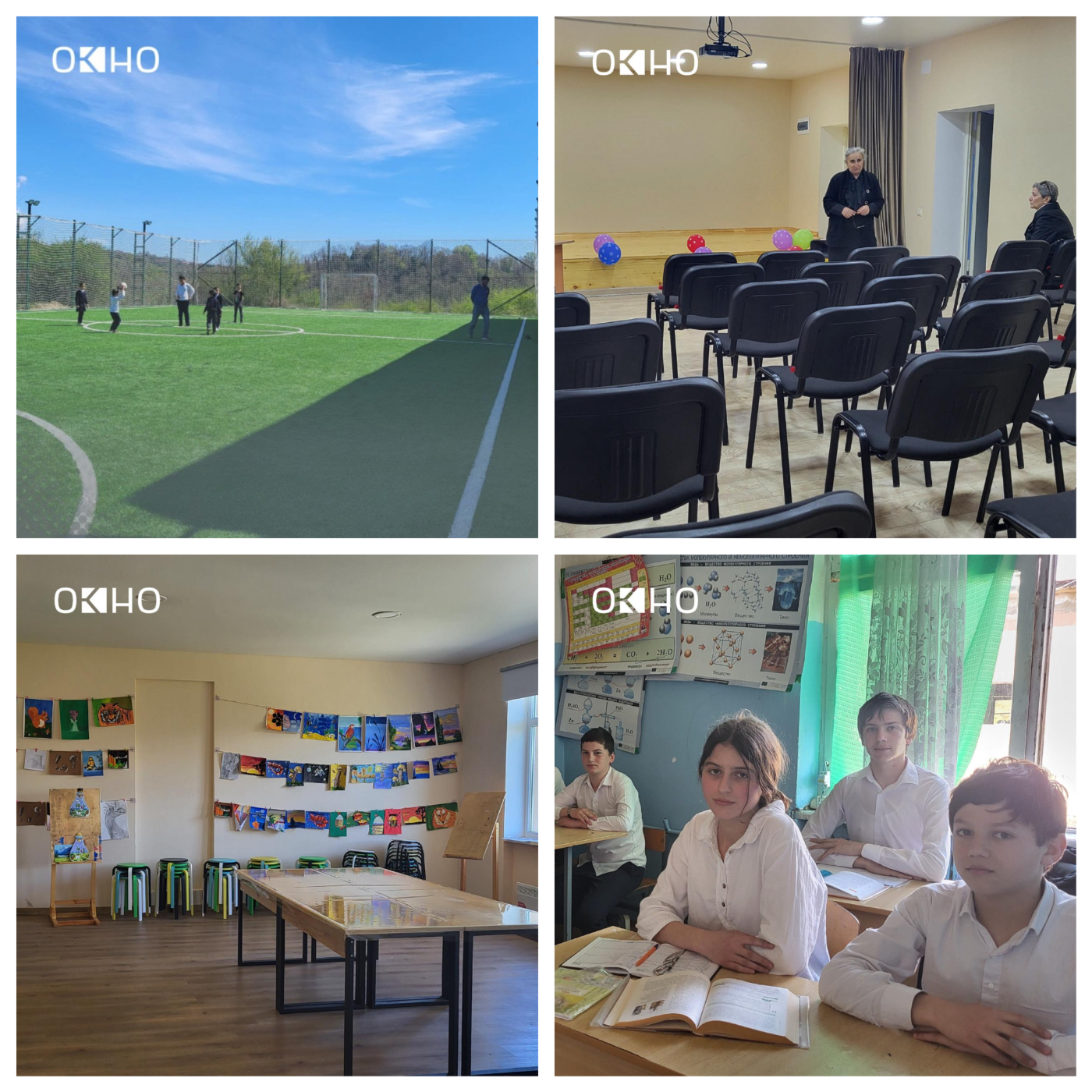
"If our school closes, there will be no youth left in our village. The right to education is one of the most fundamental, and the conditions in which our children are educated play a significant role," she said.
Upon entering the school, the first thing you see are displays with photos of the school’s life, as well as the history of the country. One stand is dedicated to veterans of the Great Patriotic War of 1941-1945, and another to veterans of the 1992-1993 Patriotic War of the People of Abkhazia (Georgian-Abkhazian War —Ed.).
Alla Smyr has been a member of the district’s initiative group since 2018. Through the rural development programme, she submitted a project for the reconstruction of the assembly hall. The total cost of the project was 860,000 roubles ($9,460). Under the project’s terms, beneficiaries are required to contribute 10% of the total amount. Businessman Alkhaz Argun provided sponsorship.
"The social project was like a breath of fresh air for us, for the staff, and for the students—everyone is delighted," says the school’s headteacher.
"We had a meeting with the school’s alumni, and when they came and saw our new assembly hall, they were all amazed!" the headteacher continues.
"We have a really nice assembly hall now. Before, we held events in the corridor or downstairs. Now, all activities take place in the hall. Our school is excellent; I like it here—I feel at home in my village," shares Said Agrba, a Year 9 student.
When asked what he would say to the students who travel to town for school, he responded:
"I would tell them to stay where they live, in the villages, and help their schools," said Said Agrba.
"When we heard that, thanks to Alla Vasilyevna’s efforts, our assembly hall would be renovated, we were so happy for her and for us! It’s going to be even better, and we’ll perform on stage! We did have a hall before, but it was damp and not very comfortable," remarked the Year 11 students.
"I don’t see any difference between studying in a town school or here. If someone truly wants to learn, they’ll find the time. We have everything here: classrooms, good teachers, and books. But the most important thing is the desire, of course. I don’t understand why they go to town when we have a school here," says Leon Agrba, a Year 11 student.
In the village of Kulanurkhu, the oldest First School, named after Mikhail Trapsh, was built in 1934. Currently, lessons are held in the village administration building. The headteacher, Asida Tsushba, shared that they were in desperate need of a computer classroom:
"We reached out to government institutions several times. They kept telling us: ‘Your school has too few students, why do you need a computer room?’ As long as we continue to function, the Abkhaz language will be heard, and Abkhaz traditions will be preserved. Our school grounds contain monuments to the archaeologist Mikhail Trapsh and to our boys who died in the 1992-1993 Patriotic War of the People of Abkhazia. We feel it’s our duty to continue our work and to raise educated people because, without computers and modern technology, it’s very difficult to compete in today’s world. It was only thanks to the UNDP programme that our plans were realised, despite the fact that we have only 30 students."
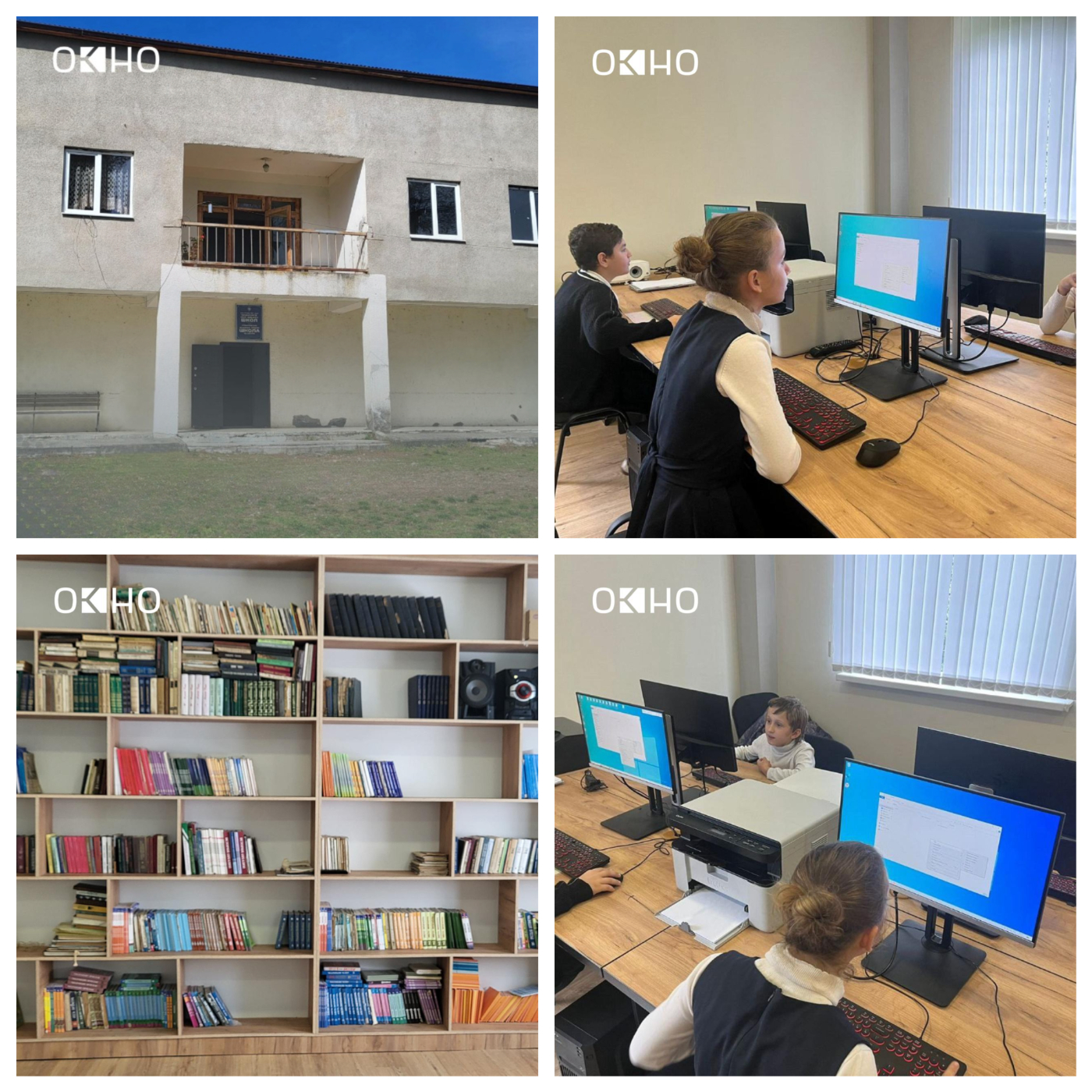
The computer science teacher conducts lessons for the students twice a week. The village teachers are also being trained in computer literacy. The computer room serves as a kind of educational centre: it houses a library where literary readings and various events are held. Around one million roubles ($11,000) were spent on the project.
"Everything was done from scratch. Not only was the classroom renovated, but the entire building received cosmetic repairs, with new electrical wiring installed and entrance doors replaced. The school didn’t have internet, so it was installed. We acquired a voltage regulator, air conditioner, projector, and music system. Organisations like these are vital because they give us hope. We never imagined we’d be able to work in such a modern, well-equipped computer room. Our regional manager has always been helpful, but the support he can provide is in the range of 30-40 thousand roubles ($330 - $440)," says the headteacher.
According to Tsiza Gumba, head of the public organisation Амилаҭтә ресурсқәа ("National Resources"), a tremendous amount of work has been done over the past few years. She first met with all the village heads and residents of Gudauta District to inform them about the project, which was aimed at helping rural residents. Then the village heads took the initiative themselves, involving people, with school principals playing an active role.
"The village representatives selected the projects by secret ballot; we only helped with their implementation. Initially, we planned to focus on the districts, but we then decided to include the towns because the issues are the same everywhere. If the schools in the villages don’t function—and this is a growing trend in Gudauta, where many people work in the town and take their children to town schools when they leave for work—then my task was to convince everyone that schools should have assembly halls, sports grounds, and modern equipment. There was a lot of debate about the horse stable project. It’s an important one, and the stable has been built, and today, young and old alike are using it. When the country’s leaders ask what’s been done, saying they can’t see or hear about our work, I always say, if people have the desire, they will see and hear. When hundreds of people participate in projects, when the Minister of Education attended the opening of the assembly hall at Kulanurkhu School, there was a big concert, and the children performed. We always invite everyone to these events—parliamentarians, public figures."
Social projects are the collective work of people. And it’s not only the members of Амилаҭтә ресурсқәа but also international organisations, initiative groups, school leadership, village communities, activists, and concerned citizens of the country who make these projects possible.